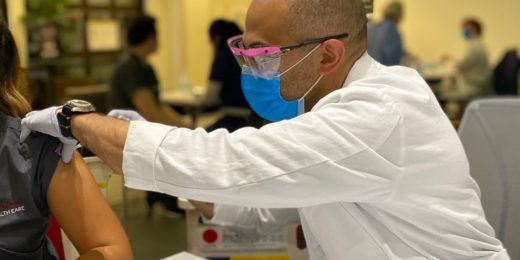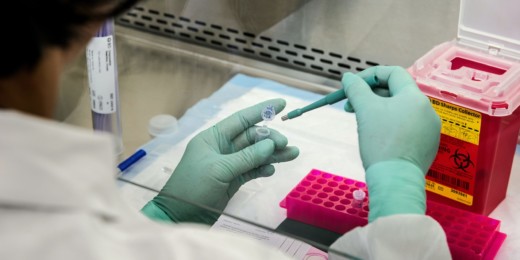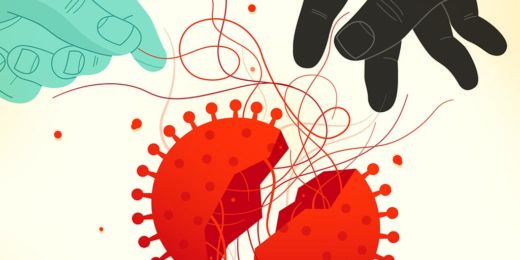Two Stanford gynecologists talk about pelvic and sexual pain, and why it's so important to empower patients to address it.
Author: Hanae Armitage
Countering decades of racism in medicine
In addressing decades of structural racism in health care, Stanford Medicine researchers are devising new strategies to reach racial equity.
Overtime army steps in to vanquish coronavirus, one vaccine at a time
Staff and faculty from across Stanford Medicine are stepping up to vaccinate members of the community at sites across the Bay Area.
Stanford patient recounts journey back from massive brain bleed
Ten years after a Stanford patient suffered a massive stroke and underwent two brain surgeries, she's publishing a book of poems.
Stabilizing RNA molecules to strengthen vaccines — including for COVID-19
Stanford Medicine researchers have found a new way to stabilize mRNA molecules, something that could boost COVID vaccines.
Tracking COVID-19 in Pac-12 athletes using smartwatches
Stanford Medicine researchers and collaborators aiming to predict and detect COVID-19 through smartwatch data expand user base into Pac-12 athletes.
In darkness, loneliness, Stanford Medicine chaplains bring peace, strength and hope
Stanford chaplains help patients, patient families and hospital staff impacted by COVID-19 fulfill their spiritual needs.
Disease detective tells stories of mystery diseases in new book
Euan Ashley, professor of medicine and genetics, tells the stories of his patients with rare or mystery diseases through his new book, The Genome Odyssey.
Take heed: Turn to the experts to interpret pharmacogenetic tests
In the burgeoning field of pharmacogenetics, adhering to expert-developed guidelines is increasingly important, a Stanford Medicine physician emphasizes.
Menstrual cycle more powerful than daily, weekly and seasonal cycles in command of mood, vital signs
Researchers at Stanford are using data from a menstrual cycle tracking app to better understand variation in mood, behavior, and other health parameters.
Based on genes, nearly everyone is likely to have an atypical response to at least one drug
Stanford Medicine researchers found that, based on genetic makeup, 99.5% of people are likely to have an atypical response to at least one drug.
How telehealth has exploded during the pandemic and why it is here to stay
In Stanford Medicine's Recover, Restore and Re-open framework, experts discuss how the shift to telehealth likely represents the new norm.
Running clinical trials in a pandemic
Doctors and researchers are prioritizing a digital-first approach as they adapt clinical trials to the COVID-19 pandemic.
What COVID-19 has taught us about clinical trials
Stanford Medicine researcher John Ioannidis calls for transparency and the sharing of data, a lesson learned through COVID-19.
Stanford Medicine researchers work to stop COVID-19
Stanford Medicine researchers are investigating SARS-CoV-2 to address the COVID-19 pandemic and ultimately help restore normalcy to society.
How does 2020 Nobel Prize-winning CRISPR technology work?
The 2020 Nobel Prize in Chemistry recognized the scientists who developed the CRISPR-Cas9 gene-editing technology. Here's how it's changing medicine.

















